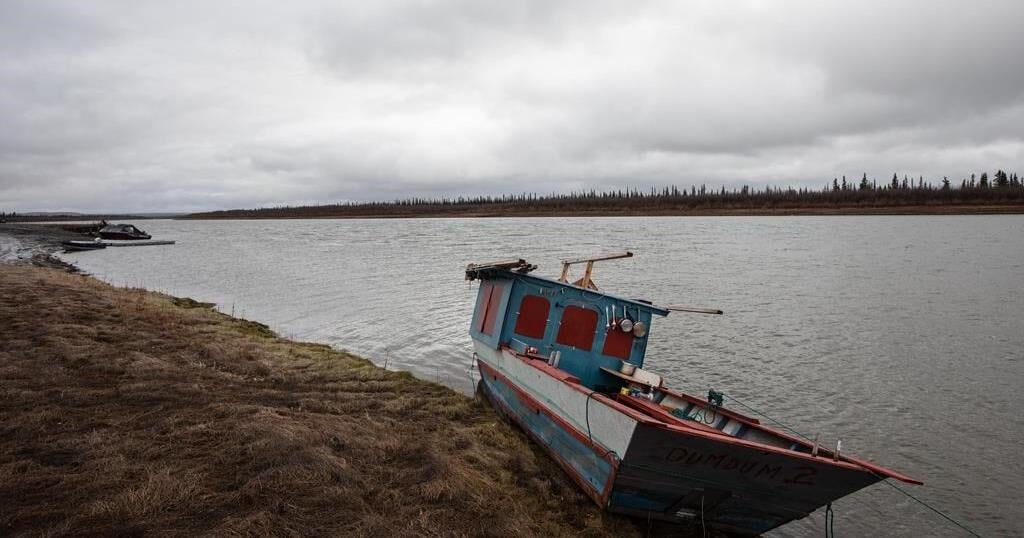Canopy Growth Corp. will lay off 800 workers as part of a transformation plan that will see the company close its hallmark 1 Hershey facility and consolidate some of its cultivation operations.
The Smiths Falls, Ont., cannabis company said Thursday that the layoff will impact 35 per cent of its workforce, with 40 per cent of the cuts happening immediately and the remainder taking place over the next several months.
The move is meant to help the company behind brands like Tweed, Quatreau, Doja and Ace Valley reach profitability and enable sustainable and long-term growth. Both have become difficult because the illicit market still captures about 40 per cent of all pot sales and the Canadian cannabis sectoris valued below the $7 billion that was once projected, said David Klein, Canopy Growth’s chief executive.
“We expect the sector challenges to remain for years to come and as a result, the sustainability of this legal sector is in question,” he said Thursday on a call with analysts.
Canopy’s share price tumbled 16 per cent to $3.08 in mid-morning trading after the company revealed its net loss amounted to $266.7 million or 54 cents per diluted share for the third quarter, which ended Dec. 31. The result compared with a net loss of $115.5 million or 28 cents per diluted share in the same quarter a year earlier.
Canopy said the larger loss was driven primarily by non-cash, fair-value changes and an increase in asset impairment and restructuring costs.
Net revenue for the quarter totalled $101.2 million, down from $141.0 million a year earlier.
As a result of the measures announced Thursday, Canopy will take a pre-tax charge between $425 million to $525 million, but hopes to achieve savings between $140 and $160 million in the next 12 months.
Staffing cuts to cultivation, manufacturing and other areas of operations will deliver $45 to $50 million in annualized cost of goods sold savings alone, said Judy Hong, the company’s chief financial officer, on the same call as Klein.
Other savings will come from winding down operations at 1 Hershey Dr. in Smiths Falls, just south of Ottawa, where chocolate company Hershey once had a factory.
One Hershey, which has long been Canopy’s headquarters, was the company’s main site for flower and edibles production, but also housed office space.
The company will now complete post-production flower activity at 99 Lorne St., which is across the street from 1 Hershey and already has a regional distribution centre, bottling facility and beverage capabilities.
Canopy will also cease to source flower from its Mirabel, Que., facility, which is owned and operated through Les Serres Vert Cannabis Inc., a joint venture partnership between the company and Les Serres Stephane Bertrand Inc., a tomato greenhouse operator.
Canopy previously purchased pot from the joint venture, but will cease that activity and now move to a more flexible sourcing strategy to ensure Quebec-grown products are brought to consumers in the province.
The company is still in discussions about the long-term future of the site, Klein said.
Rounding out the facility changes will be the consolidation of cultivation at Canopy’s Kincardine, Ont., and Kelowna, B.C., sites.
As the company transitions its facilities and operations, it will work to balance in-house with third-party manufacturing by focusing internal capabilities on flower, pre-rolls, softgel capsules and oils. It will rely on third-parties when sourcing vapes, beverages, edibles and extracts.
The final part of the changes comes in the form of a partnership with Quebec-based EXKA, which holds the world’s largest cannabis library. The company will now manage Canopy’s genetics program, ensuring Canopy can preserve its investments in genetics but also receive optimized strains and new cultivars.
Canopy’s transformation plan comes after years of Canadian pot companies slashing workforces and tightening operations in a bid to reach their long-awaited goal of profitability.
Making the goal tough to reach has been the strength of the illicit market, a slow move toward federal legalization in the U.S. and sales that have underwhelmed when compared with lofty estimates some cannabis company executives first foresaw for the industry.
“Today there are two very different cannabis markets in Canada: one that is legal, highly taxed and regulated and one that is thriving and illicit,” Klein said.
“The unregulated, illicit market is generating billions of dollars of dollars of revenue with 40 per cent of market share and faces virtually no risk of enforcement.”
The Ontario Cannabis Store said in March that the illicit market share is 43 per cent.
As a result, the legal sector is forced to compete on price “out of necessity,” he said.
The average price for cannabis was $11.78 per gram at the start of 2019, shortly after legalization, but fell to $7.50 per gram in 2021, a November report from Deloitte Canada and cannabis research firms Hifyre and BDSA said.
The average price for vape cartridges has similarly fallen by 41 per cent from $32.02 per gram around legalization to $19 per gram a year later.
Such drops have prodded Canopy into refocusing its product mix on the premium sector, which typically commands higher prices and generates a more loyal consumer basis than value items.
“We deliberately chose not to chase the value segment, which has had a dampening effect on our topline because of the growth of that segment,” Klein admitted.
“We didn’t believe we could build a profitable, sustainable business at the value level in the Canadian market.”
The move toward premium was coupled with an ongoing cost-cutting plan in recent years involving hundreds of job cuts, the retooling of its facilities, reviewing procurement strategies, implementing flexible manufacturing processes and reducing third-party professional and office fees.
Canopy is also still awaiting shareholder approval for Canopy USA, a separate entity that will combine U.S. pot company Acreage Holdings Inc. with edibles businesses Wana Brands and Jetty Extracts.
This report by The Canadian Press was first published Feb. 9, 2023.

Source link
Related
























